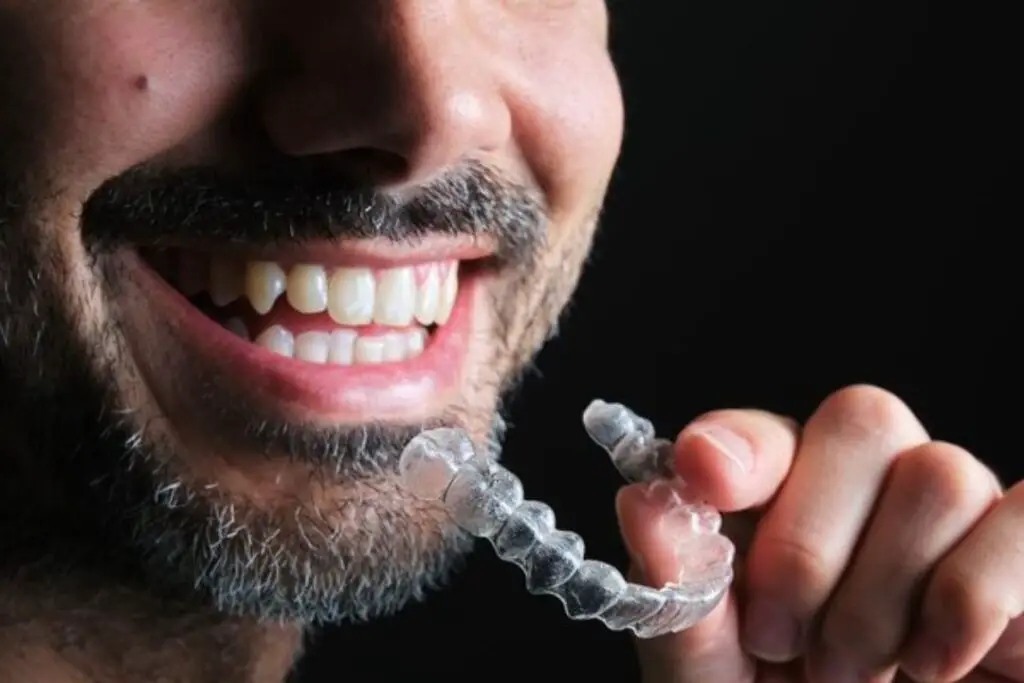Bruxism, or teeth grinding, is a common condition among both children and adults. This condition occurs when your jaw involuntarily grates against your teeth, resulting in significant pain and discomfort. While there are many potential causes of bruxism, including stress and anxiety, it can often be treated through a combination of behavioral changes and dental care.
To stop your baby from grinding their teeth, you may need to seek the assistance of a pediatric dentist or another healthcare professional who can help identify the underlying cause of the issue and recommend appropriate treatment methods.
There are several strategies that you can try to help keep your child’s teeth protected and minimize the effects of bruxism on their oral health. These may include using a specialized.
How to stop the baby from grinding teeth?
If you are noticing your baby grinding his or her teeth, it is important to take action to stop the behavior. Teeth grinding can lead to a number of problems, including damage to the teeth, jaw pain, and headaches. There are a few things you can do to stop your baby from grinding his or her teeth:
Read More: When to Change Nipple Size?
Talk to your dentist
Your dentist may be able to help you identify the cause of your baby’s teeth grinding and recommend ways to stop the behavior.
Try a night guard
A night guard can help protect your child’s teeth from damage caused by grinding.
Encourage your child to relax before bedtime
Help your child wind down before bedtime by reading together or taking a bath. This can help reduce the stress that may be causing your child to grind his or her teeth.
Encourage your child to relax before bedtime
Help your child wind down before bedtime by reading together or taking a bath. This can help reduce the stress that may be causing your child to grind his or her teeth.
Avoid foods and drinks that contain caffeine
Caffeine can make teeth grinding worse, so avoiding it may help reduce your child’s symptoms.
Read More: Can Adults Use Baby Wipes Instead of Toilet Paper?
Practice good oral hygiene
Be sure to brush and floss your child’s teeth regularly to help keep them healthy and prevent tooth damage from grinding.
Why do toddlers grind their teeth?
There can be a number of different reasons that toddlers grind their teeth, including stress, jaw pain, or poor oral hygiene. Some common risk factors for teeth grinding in toddlers include exposure to loud noises or pressure on the face, such as from use of a pacifier or thumb-sucking habit.
To help reduce your child’s symptoms and prevent further damage to their teeth, it is important to work with your child’s doctor or dentist to identify any underlying causes and develop a plan for dealing with teeth grinding.
This may include strategies such as using a night guard, practicing good oral hygiene habits, and avoiding foods and drinks that contain caffeine.
By working together to address the root cause of your child’s teeth grinding and taking steps to prevent? It, you can help keep your child’s smile healthy and bright.
Buy Best Split Screen Baby Monitor
What are the effects of bruxism?
Bruxism, or teeth grinding, is a common problem that can affect both children and adults. This condition is associated with a number of negative effects, such as tooth wear, jaw pain, headaches, and disrupted sleep.
While the exact cause of bruxism is not known, there are some strategies that can be used to help reduce symptoms and prevent further damage to the teeth and jaw. These may include using an orthotic device to keep the jaw in place while sleeping, practicing relaxation techniques to help manage stress levels, and seeing a dentist regularly for preventive care.
If you are concerned about how your child’s teeth grinding is affecting their oral health and overall wellbeing. Talk to your doctor or dentist for more guidance on how to stop the baby from grinding teeth.
Does Tooth Grinding Damage a Baby’s Teeth?
Tooth grinding, or bruxism, is a common habit in babies and toddlers. It usually starts around 6 to 8 months old, when babies are getting used to the feel of their teeth. Some babies grind their teeth only occasionally, while others do it more often.
Most babies who grind their teeth don’t do any damage to their teeth. However, if your child grinds his or her teeth hard and for long periods of time. It can damage the enamel (the hard outer coating of the tooth). In rare cases, severe tooth grinding can even cause fractures in the teeth.
If you’re concerned that your child’s tooth grinding is damaging his or her teeth, talk to your dentist. He or she can check for signs of damage and help you come up with a plan to protect your child’s teeth.
There are a few things you can do to help stop your child from grinding his or her teeth:
Encourage your child to drink plenty of water throughout the day. This will help keep his or her mouth hydrated and may help reduce tooth grinding.
Make sure your child is getting enough sleep. Fatigue can be a trigger for tooth grinding.
Massage your child’s gums gently with your fingers. This can help relieve any pain or discomfort that may be causing your child to grind his or her teeth.
Give your child a soft, chewable toy to bite on when he or she feels the urge to grind. This can help redirect your child’s focus and prevent him or her from grinding.
If you’re still concerned about how often your child is grinding his or her teeth, talk to your dentist for more tips on how to stop it. With a little patience and some simple strategies, you can help protect your baby’s smile from the effects of tooth grinding.
What are the treatments for teeth grinding?
There are a few different ways that you can treat teeth grinding, depending on the severity of the problem. For milder cases, your dentist may recommend simple at-home treatments, such as:
Wearing a night guard
This is a mouth guard-like appliance that you wear over your teeth while you sleep. It helps to protect your teeth from the damage caused by grinding and also prevents you from clenching your jaw.
Doing Jaw exercises
There are a number of different exercises that can help to strengthen the muscles in your jaw and face, which can help to reduce teeth grinding.
Avoiding trigger foods and beverages
If you find that certain foods or drinks seem to trigger your teeth grinding, it is best to avoid these in order to minimize your symptoms.
For more severe cases, your dentist may recommend further treatments, such as behavioral therapy or medications that can help to soothe the jaw muscles.
Ultimately, the treatment you receive will depend on the underlying causes of your teeth grinding and how much it is affecting your oral health and overall wellbeing. With proper care, however, you can successfully manage this condition and prevent any long-term damage from occurring.
If you think you may be grinding your teeth, it is important to see your dentist for an evaluation. They will be able to diagnose the problem and recommend the best course of treatment. Additionally, they can check for any signs of damage to your teeth and make sure that your jaw is functioning properly.
How Chronic Bruxism Is Treated?
Bruxism, or chronic teeth grinding and jaw clenching, can be a serious problem for both children and adults. While there are many different treatments available, the most effective approaches typically involve working to address the underlying causes of bruxism and implementing strategies to minimize its effects.
Some common treatment options for chronic bruxism include lifestyle changes, stress management techniques, surgery or orthodontics, and medications or mouth guards. Ultimately, the best approach will depend on the individual’s specific circumstances and needs. With proper care and attention, however, it is possible to manage this condition effectively and regain control over one’s health and wellbeing.
If you suspect that your child may be experiencing symptoms of chronic bruxism, it is important to speak with your healthcare provider right away. This condition can have a serious impact on dental health, and early diagnosis and treatment are key to preventing long-term damage.
Your doctor may recommend various interventions, such as stress management techniques or the use of specialized mouth guards or medications, in order to help minimize symptoms and prevent further damage. With proper care and support, it is possible for children with bruxism to lead healthy and happy lives.
When To Visit A Pediatric Dentist About Teeth Grinding In Children?
Teeth grinding, also known as bruxism, can be a common problem for children of all ages. If your child is experiencing symptoms of teeth grinding, such as excessive jaw pain or soreness and headaches, it is important to visit a pediatric dentist for an evaluation. In some cases, teeth grinding may be caused by an underlying issue or condition that requires treatment, such as sleep apnea or misaligned teeth.
There are several strategies that you can implement at home to help prevent your child from grinding their teeth. These include avoiding foods and drinks high in sugar and caffeine, using a mouth guard during sleep, practicing stress relief techniques like meditation or deep breathing exercises, and making regular dental appointments for routine check-ups and cleaning.
Can bruxism be prevented or avoided?
Many parents worry about their children grinding their teeth, but there is no need to be alarmed. Bruxism, or tooth grinding, is a normal part of the development and usually goes away on its own after a child reaches school age. However, if bruxism persists or becomes severe. It can lead to problems such as headaches, jaw pain, and damage to the teeth.
There are some things that parents can do to help prevent or reduce bruxism in their children:
Encourage your child to eat a healthy diet rich in vitamins and minerals. A lack of certain nutrients has been linked to bruxism.
Make sure your child is getting enough sleep. Sleep deprivation can cause an increase in stress and anxiety, which can trigger tooth grinding.
Look for behavioral triggers such as stress or boredom that could be causing your child to grind their teeth. Try to address these issues and find ways to help your child cope with them in a healthy way.
If you notice that your child is experiencing excessive pain or other symptoms of bruxism. It is important to consult a doctor or dentist right away. They may recommend the use of mouth guards, braces, or other oral devices to protect the teeth from further damage.
Additionally, they may also suggest counseling or therapy if there are underlying mental health issues at play. With the proper treatment and care, it is possible to prevent or reduce bruxism in children, so parents should not worry too much about this common condition.




